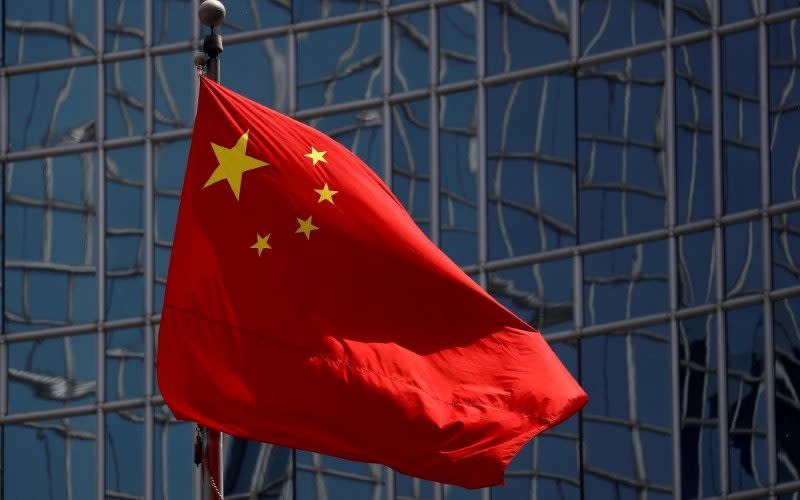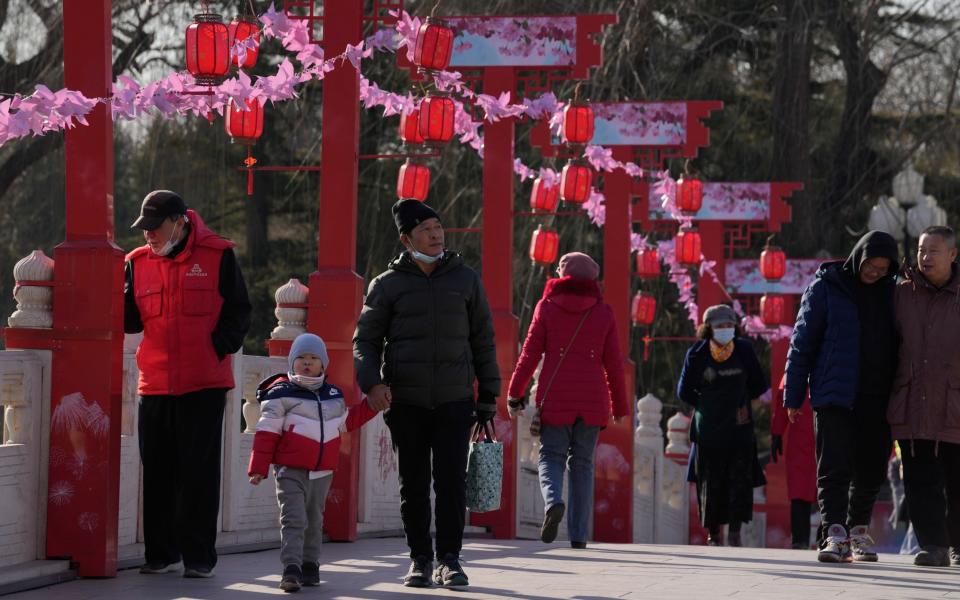India overthrows China as Beijing counts the cost of zero Covid

- Oops!Something went wrong.Please try again later.
China will be overthrown as the world’s fastest-growing major economy in 2022, according to new forecasts, as the Communist regime’s commitment to zero Covid compounds a property market bust and democracies gain ground with more liberal policies.
The United States is now expected by economists to out-grow China in 2022, reversing the pecking order in the G20 for much of the past two decades.
The investment bank Nomura predicts China will grow by just 4.3pc in 2022, compared to 4.6pc for the US and 8.5pc for the emerging titan India. The UK is on track for 4.2pc growth, it said.
India also outgrew China in 2021 as the pandemic rolled on, but economists believe 2022 could set a new long-term pattern.
The outlook is dire by Beijing’s standards of the almost 30 years between 1991 and 2018, in which China never grew by less than 6pc.
Ting Lu, chief China economist at Nomura, said: “China has been very successful in containing Covid, but its strategy is also costly.”
He pointed to China’s “Golden Week” holiday in October, when revenues from tourism were down 40pc compared with 2019.
Mr Lu added: “The zero-Covid strategy has quite a big impact on in-person services. As we extend the zero-Covid strategy, the cost is likely to increase.
“For households in those sectors - airlines, restaurants, tourism - at the beginning of their unemployment or underemployment, they had savings to tap. But if they are in such a difficult situation for more than a year and have used up some savings, they have to be very cautious, so they will have to cut their consumption demand.”

China recovered rapidly from the pandemic, but has been unable to turn this into sustained momentum.
Senior figures in international finance have been warning that China’s commitment to zero Covid is a threat to the global economy, in part because of the resulting disruption to global supply chains, which has fuelled rising inflation in the West.
In November the former Governor of the Bank of England Mark Carney said Beijing will need to “evolve or pivot” to a liberal management of the disease with vaccinations. However Chinese officials have restated their preference for strict rules, even in the face of the omicron variant.
Craig Botham at Pantheon Macroeconomics expects China to grow at 4.7pc, behind India’s 9.2pc but just ahead of the US’s 4.5pc.
He said zero Covid policies could make China appear a less reliable supplier of goods. “There has to be a concern on the export side that if you are looking where to source things from, will you go to China where ports and factories might be shut down at a moment’s notice very unpredictably, or will you go to another part of Asia where they have pivoted to living with the virus, and you have got the same access to the rest of the world?”
“It is not something that results in everything closing overnight and moving to Vietnam, but it creates a longer-term headwind.”
Gilles Moec, group chief economist at AXA Investment Managers, said the rapid spread of omicron means heavy-handed lockdowns to counter any outbreaks “could have a very significant impact on China’s productive capacity. This would be difficult to manage for foreign countries, in particular the EU and the US, which have become even more dependent on it since the start of the pandemic."
Mr Botham said the property bust, embodied by troubled development group Evergrande, is also holding back crucial economic activity.
China has endured years of scepticism that its long boom could continue, but analysts at Citi warned “there are good reasons for thinking ‘this time is different’ in China, with the risk of a deeper and longer slowdown there as policymakers in Beijing stick with their intention to wean the Chinese economy off its dependence on real-estate investment, and embark on a more import-substituting, ‘fortress-like’ economic strategy”.
The result could be “a China-related negative shock to global activity”, they added.

